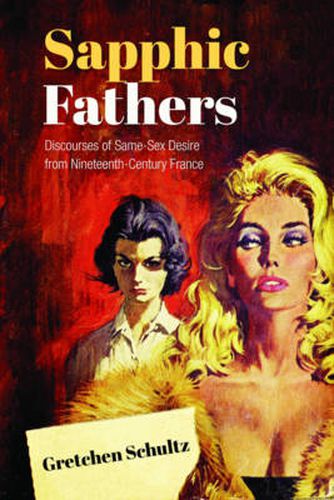Readings Newsletter
Become a Readings Member to make your shopping experience even easier.
Sign in or sign up for free!
You’re not far away from qualifying for FREE standard shipping within Australia
You’ve qualified for FREE standard shipping within Australia
The cart is loading…






Literature that explored female homosexuality flourished in late nineteenth-century France. Poets, novelists, and pornographers, whether Symbolists, Realists, or Decadents, were all part of this literary moment. In Sapphic Fathers, Gretchen Schultz explores how these male writers and their readers took lesbianism as a cipher for apprehensions about sex and gender during a time of social and political upheaval.
Tracing this phenomenon through poetry (Baudelaire, Verlaine), erotica and the popular novel (Belot), and literary fiction (Zola, Maupassant, Peladan, Mendes), and into scientific treatises, Schultz demonstrates that the literary discourse on lesbianism became the basis for the scientific and medical understanding of female same-sex desire in France. She also shows that the cumulative impact of this discourse left tangible traces that lasted well beyond nineteenth-century France, persisting into twentieth-century America to become the basis of lesbian pulp fiction after the Second World War.
$9.00 standard shipping within Australia
FREE standard shipping within Australia for orders over $100.00
Express & International shipping calculated at checkout
Literature that explored female homosexuality flourished in late nineteenth-century France. Poets, novelists, and pornographers, whether Symbolists, Realists, or Decadents, were all part of this literary moment. In Sapphic Fathers, Gretchen Schultz explores how these male writers and their readers took lesbianism as a cipher for apprehensions about sex and gender during a time of social and political upheaval.
Tracing this phenomenon through poetry (Baudelaire, Verlaine), erotica and the popular novel (Belot), and literary fiction (Zola, Maupassant, Peladan, Mendes), and into scientific treatises, Schultz demonstrates that the literary discourse on lesbianism became the basis for the scientific and medical understanding of female same-sex desire in France. She also shows that the cumulative impact of this discourse left tangible traces that lasted well beyond nineteenth-century France, persisting into twentieth-century America to become the basis of lesbian pulp fiction after the Second World War.